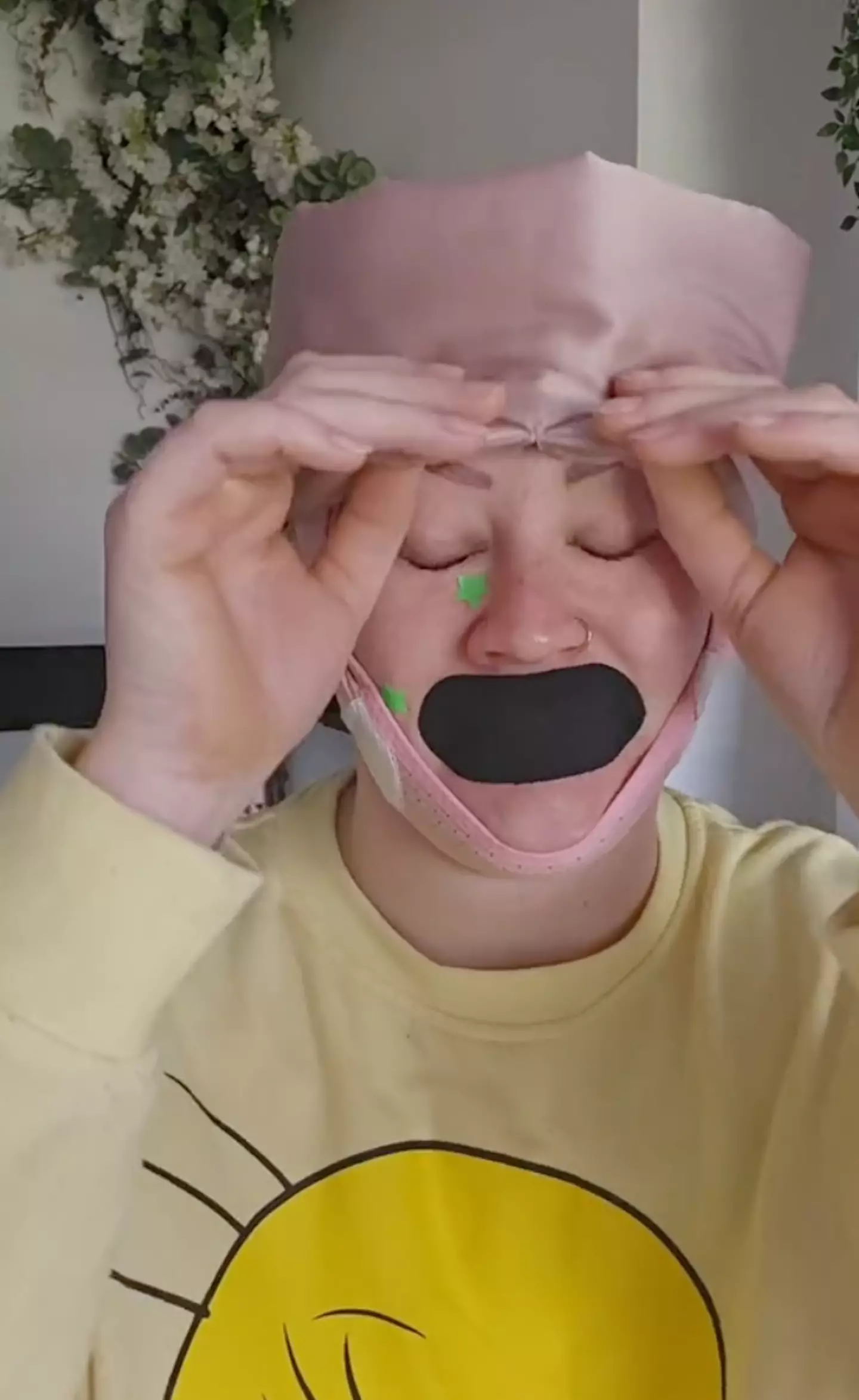
There's not much better than a good night's sleep.
However, dosing off is clearly an easier feat for some than others - hence why we have a whole arsenal of sleep trends the internet swears by which apparently help you catch some Z's that'll leave you feeling proper refreshed in the morning.
We already know all about the benefits of 'swaddling', the issues surrounding 'bed-rotting' and the highly controversial 'morning shed' routine but there's a new buzzword we've got to add to our dictionaries now that a doctor has issued a warning over the viral 'sleepmaxxing' TikTok trend.
Advert

What is sleepmaxxing?
OK, before we get into the ins and outs of the latest wellness trend to hit Gen Z - what on earth does sleepmaxxing even mean?
Well, according to Dr Seeta Shah, Sleep and Wellness Expert for Panda London, sleepmaxxing refers to 'the practice of optimising one’s sleep as much as possible, often by focusing on improving both the quantity and quality of sleep'.
Advert
Doing so can involve a number of different techniques, routines, and even gadgets to 'ensure more restful, deeper and prolonged sleep'.
It can also include various lifestyle changes like adjusting your sleep environment, keeping to strict sleep schedules or incorporating calming pre-sleep rituals like meditation, herbal teas, or using sleep-enhancing apps.

Why are Gen Z so obsessed with sleepmaxxing?
Dr Shah tells us that sleepmaxxing is super popular among Gen Z - particularly those interested in health, wellness, and self-improvement. "Influencers, sleep enthusiasts, and even some healthcare professionals contribute to this trend by sharing their advice and sleep experiences," she explains.
Advert
"Additionally, individuals who are concerned about burnout, mental health, or who are trying to improve their productivity or focus may be drawn to sleepmaxxing practices."
What are the benefits of sleepmaxxing?
Now, according to the doc, the primary benefit of sleepmaxxing is that it promotes better sleep, which is crucial for overall health.
Improved sleep can lead to; enhanced mood and emotional regulation, better cognitive function, including memory, focus and decision-making, improved physical health, as sleep is vital for the immune system, hormone regulation and cellular repair.
Advert
Sleeping better also reduces the risk of chronic conditions, such as heart disease, diabetes and obesity as well as increases productivity and energy levels during the day.

What are the risks of sleepmaxxing?
While sleepmaxxing can have significant benefits, Dr Shah warns there are potential risks if it is taken to extremes or misunderstood.
Advert
The doctor explains that sleepmaxxing can lead to people becoming 'overly fixated on perfecting sleep' which can lead to stress or anxiety.
Ironically, this can end up disrupting sleep rather than improving it.
"This condition is sometimes referred to as 'orthosomnia' - a preoccupation with achieving perfect sleep," Dr Shah tells us.
Additionally, you can experience sleep disruption from gadgets as some sleep-maximising gadgets, such as sleep trackers or blue light-emitting devices, can sometimes do more harm than good if not used properly.
Dr Shah warns: "They may interfere with natural sleep patterns or lead to obsession over sleep data."
Likewise, mouth taping (which is a popular item used when it comes to sleepmaxxing) can also further disrupt sleep due to discomfort or difficulty breathing.
The doctor also notes that sleepmaxxing could result in 'unrealistic expectations', explaining: "Not everyone has the same sleep needs, and following rigid sleepmaxxing routines might cause unnecessary frustration for those who don't experience the same results. For example, trying to sleep for excessively long periods may make one feel groggy instead of rested."
And lastly, as always, there's a concern over misinformation spread online.
"Some sleep advice shared on social media may not be evidence-based or suitable for everyone, leading people to adopt practices that could interfere with their individual sleep needs," the doctor concludes.